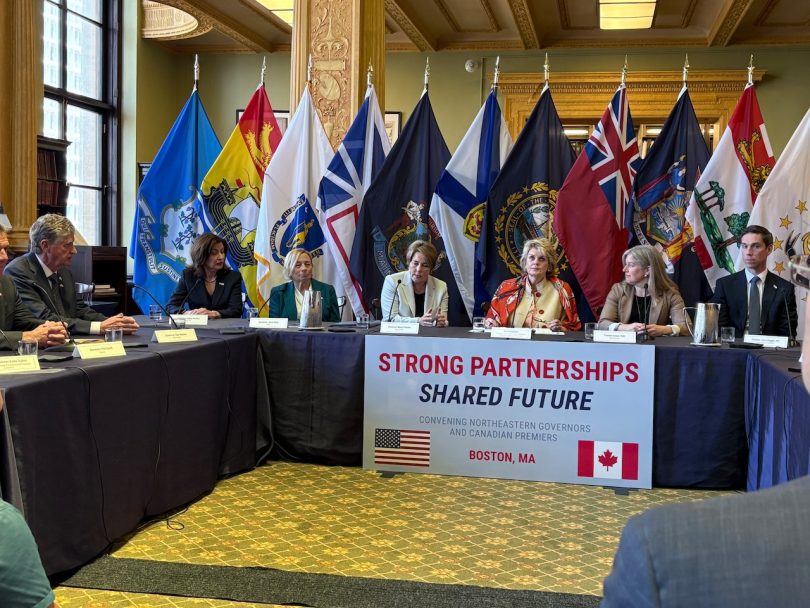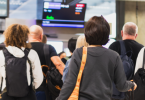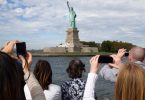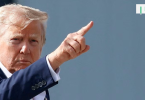Intertwined.
That’s the one word that a gathering of northeastern governors and Canadian provincial leaders used over and over again as they described the interdependent web of trade, energy resources, and tourism that stretches across both sides of the border.
They pointed to the automobile parts that hopscotch between the U.S. and Canada before they finally become a finished car; to the aluminum that provides the cans for Massachusetts’ craft brewers; to the natural gas and oil that heat New Englanders’ homes, and the tourists who book Airbnbs along Maine’s coast.
Each side depends on the other. And that relationship has been stressed by the Trump White House’s aggressive tariff regime, the officials said. But that doesn’t have to mean that it’s broken irreparably.
“The northeast is open for business and open for trade,” Massachusetts Gov. Maura Healey, who hosted the session, said. “It was a sobering discussion this morning, a continuing discussion, for sure … We want to show Canadians that America is open for business.”
The meeting, dubbed “Strong Partnership, Strong Future,” unfolded over about an hour early on Monday afternoon in the State Library on the State House’s third floor.
The leaders sat around a blue tablecloth-bedecked table, with state and provincial flags arrayed behind them. The message was unity and cooperation.
Five out of the six New England states were represented on Monday. New York Gov. Kathy Hochul, whose state also shares a border with Canada, was at the table.
Katie S. Dykes (L), the commissioner of the Connecticut Department of Energy & Environmental Resources talks energy prices and trade during a meeting with northeastern governors and Canadian provincial leaders at the State House in Boston on Monday, June 16, 2025. Looking on are Vermont Gov. Phil Scott (L) and Rhode Island Gov. Dan McKee (R).John L. Micek/MassLive
Katie S. Dykes, the commissioner of Connecticut’s Department of Energy and Environmental Protection, subbed in for Gov. Ned Lamont, who was repping the Nutmeg State at the Paris Air Show, she said.
And despite initial reports that it would be sending someone, a representative for New Hampshire Gov. Kelly Ayotte was not present.
The session on Beacon Hill came the same day that Trump arrived in Canada for the start of this week’s G7 summit in the nation’s Rockies. There, the chief mission appeared to be not riling up the excitable Republican president.
The summit comes as the administration has hit several dozen nations with severe tariffs that risk a global economic slowdown.
And the participants in Monday’s session were watching closely.
Even with the difficult economic talk, there were moments of comity for sure, as Vermont Gov. Phil Scott, a Republican, and Maine Gov. Janet Mills, a Democrat, stressed the generations of family ties that united their two states with Canada.
Nova Scotia Premier Tim Houston fondly mentioned the Christmas tree that his province sends to Boston Common every year as a thank you for the city’s assistance in the deadly Halifax explosion of 1917.
But there was still the hothouse rhetoric of making Canada, one of the nation’s biggest trading partners, the 51st state.
They’re still taking that personally.
“Leaders around the world that I have talked to are dumbfounded,” Ontario Premier Doug Ford said. “They tell me, ‘I can’t believe the president is going after your country.’”
Like Healey, Ford described Canada as the United States’ closest friend and ally.
But lurking beneath that famed northern friendliness was the same toughness that also sees Canadian hockey players throw nose-breaking elbows.
In February, Ford ordered Ontario’s government-run liquor stores to pull American booze from the shelves after Trump first announced his tariff scheme.
And on Monday, Ford reminded his American friends that there’s only one winner in a cross-border trade war: China.
Other leaders were more subtle.
“It’s an interesting time in the war for talent right now,” New Brunswick Premier Susan Holt mused. “I’m not going to pretend that the folks in Canada don’t see this as an opportunity to attract the best and brightest [from the U.S.].”
And even as Healey rattled off the facts and figures showing the hit that New England’s tourism industry has taken since Trump returned to power — a 20% drop from 2024 — the Canadians were sympathetic.
To a point.
“It’s challenging to us to hear from our colleagues that they are seeing a drop in tourism,” Holt observed. “It means that someone at Hampton Beach (in New Hampshire) might lose their job. It means people in the U.S. are losing their jobs in tourism.”
“You have to make noise and tell your leader that you are hurting, that you are losing jobs. You have to speak up. Canadians can’t do it for you.”
But, she added, “I can’t tell Canadians to visit the U.S. right now.”
Associated Press reports are included in this story.










